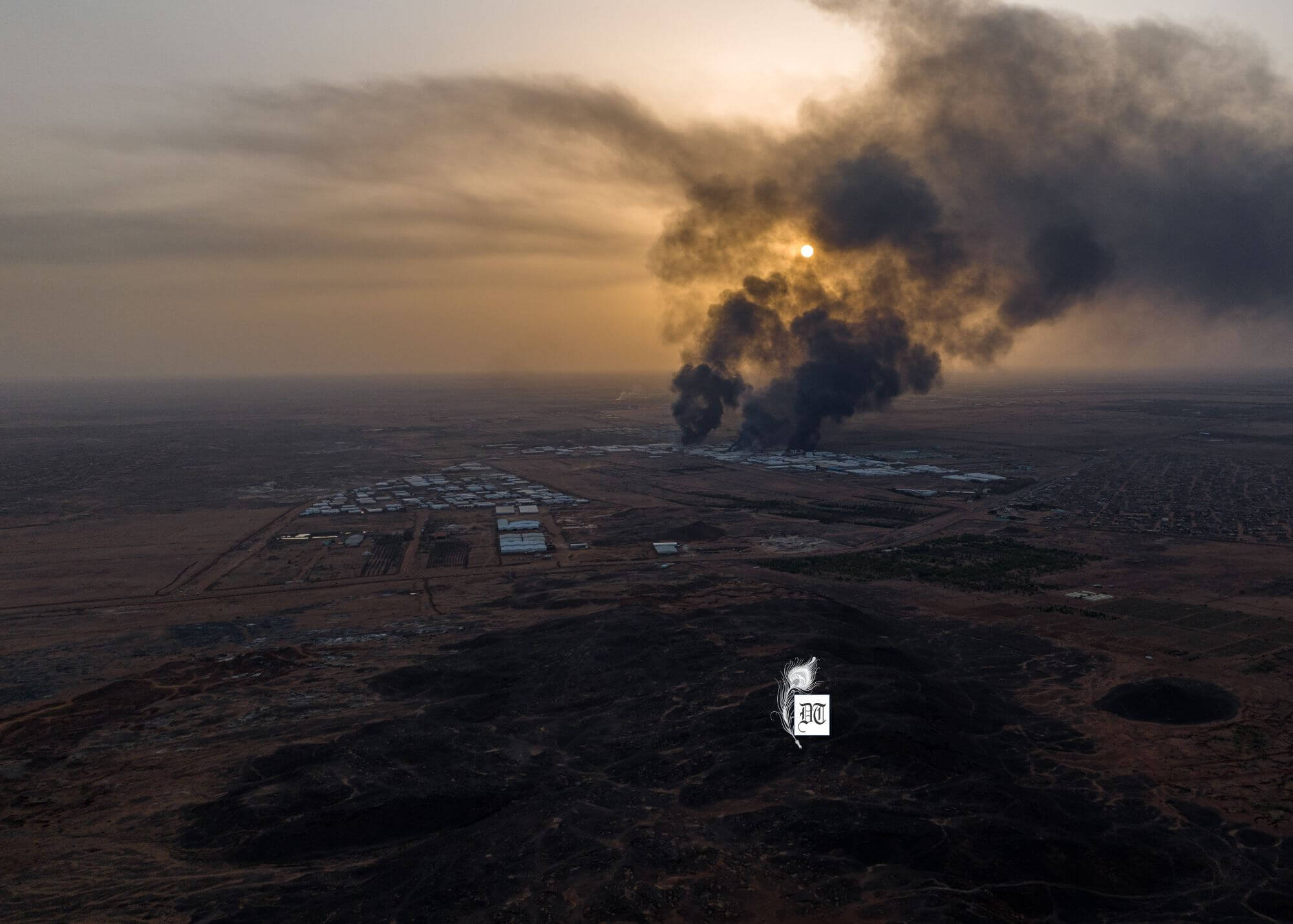Dr Baljeet discusses Syria’s decade-long crisis, characterised by political instability, economic collapse, and a diverse society of Sunni Muslims, Shias, Alawites, Ismailis, and Christians, exclusively for Different Truths.
Syria, an Arab country in West Asia, has been in a serious crisis for more than a decade. It is politically unstable and economically crippled. Its society is heterogeneous and multicultural. Of its total 2.32 crore population, Sunni Muslims constitute 74%, Shias, Alawite, and Ismaili 13%, Christians 3%, and the rest are Druze, Kurds, Turks, and some other smaller sects.
The people of this beleaguered country had suffered untold misery under the brute rule of the Assad family. Hafez al-Assad, who established this dynastic rule in 1970 after a bloodless coup, was a tyrant. He belonged to Alawite, a splinter sect of Shia Muslims, and brought the Ba’ath Party to power, of which he was the secretary-general. He served first as Prime Minister and then as President from 1971 till his death in 2000. To perpetuate his dynastic rule, he divided society into sectarian lines.
All important positions in the military, intelligence, and security were bestowed on the Alawite—his community. In contrast, non-Alawites were only figureheads in his administration. Dissenters were punished with a heavy hand. For instance, in 1982 the Muslim Brotherhood (an extremist Muslim group) raised a rebellion in Hama, and the entire region was razed to the ground with utter ruthlessness. It is estimated that about 20,000 people lost their lives in this carnage.
Repressive Regime
After Hafez’s death, his son Bashar al-Assad, a former ophthalmologist from London, succeeded him as President in 2000. He followed in his father’s footsteps. His is considered one of the most repressive regimes in the contemporary world. When a pro-democracy movement popularly called ‘Arab Spring’ ushered in Syria, Basher’s forces suppressed it with a heavy hand. Hundreds of thousands were killed, lakhs were injured, and more than 6 million fled the country out of fear in the neighbouring states during the civil war. The United Nations High Commissioner for Human Rights accused Bashar al-Assad of human rights violations and war crimes.
The United States, the European Union, and some countries of the Arab League pressured him to resign, but he remained unmoved. In the meantime, forces against him gained strength. As his position weakened rebel forces under Ahmed al-Sharaa’s command, a Hayat Tahrir al-Sham (HTS) leader made an aggressive offensive against him on December 8, 2024. He was left with no alternative but to flee to Moscow, his old ally. Jubilation erupted among the Syrians when the news of his defeat broke out.
Complicated Syrian Crisis
But the serious question to ponder is whether Bashar al-Assad’s exit would bring peace and stability in Syria, that too in the face of foreign powers’ intervention. In fact, the foreign states have their own axes to grind and have made the Syrian crisis more complex and complicated. A brief account of the interventionists deserves mention.
Russia: Russia is an old ally of Syria. It had been supporting Bashar al-Assadh mainly for two reasons. First, to counter the United States’ influence in the Middle East. For that purpose, it established its naval base in Tartus, a Syrian seaport. Second, to enrich its arms manufacturing industry by selling weapons to Syria. When the civil war broke out in Syria, Russia openly participated in favour of Bashar al-Assad. However, owing to its ongoing conflict with Ukraine, it had to withdraw its forces from Syria. Russian withdrawal was the potent cause for Bashar’s defeat.
Iran: Iran, like Russia, lends support to Basha’s government as it uses Syrian territory for training and arming Hezbollah soldiers for their export to Lebanon and fight against Israel. Iran has consistently supported the Palestinian cause in their fight against Israel, hence its backing of Hezbollah. However, Iran’s position has weakened as it faces many domestic problems and is under immense international pressure. Its economy has weakened due to sanctions imposed by the United States for its nuclear programme. Inflation is on the rise, and people’s woes are increasing. Iran, under the compelling circumstances, thus had to leave the field.
The United States of America: TheUnited States’ purpose in intervening in Syria was to sweep out the Islamic State, a dreaded terrorist organization worldwide, and to defeat Bashar al-Assad. The United States also wanted to counter Iranian influence, as Iran had been arming Hezbollah militias in Syria to fight against Israel, an all-weather friend of the United States in the Middle East. It had also imposed stringent sanctions on Iran for its ambitious nuclear programme. Moreover, the United States had also been supporting Syrian Kurdish Democratic forces fighting against Bashar’s dictatorial regime.
Turkey: The majority of the Syrians had fled to Turkey during Bashar al-Assad’s despotic regime. Turkey had helped the rebel groups, particularly the Free Syrian Army, fight against Bashar. The Free Syrian Army consists of soldiers who rebelled against the Syrian government. It is worth mentioning here that while the United States of America supports the Kurdish forces in Syria fighting against the government, Turkey is against the Kurds as they demand an autonomous region for them in Turkey. Hence the clash of interests between the two powers, as both are members of NATO. For the time being, however, Turkish influence has considerably increased in Syria because Russia, Iran, and the United States of America have partially withdrawn from it for their reasons.
Israel: Israel holds great stakes in Syria. It had already annexed its Golan Heights region in the Arab-Israel War of 1967. It is deadly against Iran for its support of Hezbollah and the Bashar al-Assad government. When Bashar fled to Russia, Israel continued its airstrikes on Syria under the pretence of destroying all weapons that, it claims, might fall into the hands of the Islamic State. In the process, it had also occupied a neutral zone, a territory beyond Golan Heights, and thus flagrantly violated the 1974 agreement between the two. Its position is strong, as the United States stands like a rock behind all its actions, fair or unfair.
Foreign Powers Rivalry
This account is enough to illustrate that Syria has become a battleground and a victim of foreign powers’ rivalry. Their varied interests have prolonged the solution to the vexed Syrian problem. Their undue intervention has threatened the unity, integrity, and sovereignty of Syria. Their internecine rivalry could lead to more dangerous global conflicts. The Syrian people have suffered a lot not only under the al-Assad dynastic brute regime but also by the incessant bombardment of the foreign states. Hundreds and thousands have been killed, innumerable injured, and displaced.
Their large exodus to other countries tells the story of their horrible suffering. Most of them had fled for survival in Turkey. Jordan, Lebanon, Iraq, Egypt, and Germany. Thus, their large-scale migration has led to an indescribable humanitarian crisis No shelter, no basic amenities, no education and no health facilities have made their lives hell. More than 90% of them live below the poverty line. Under these hard circumstances, will they be able to survive when they return to their country?
Urgent Attention Needed
The question needs urgent attention from the powers at the helm. The foreign airstrikes and missile attacks have taken the precious lives of innocent populations. According to international law, it amounts to war crimes and human rights violations. Who will hold these powers responsible for the heinous crimes they have committed unashamedly? Perhaps they would go scot-free. The unimaginable destruction of the bombardment has polluted the region. Poisonous gases emanating from large-scale explosions have further heated the planet and choked the atmosphere. Cities like Aleppo and Raqa have been razed to the ground, thus making life most difficult in such a hazardous environment.
The situation in Syria is thus serious and pathetic. However, for the time being, a glimmer of hope is visible as an interim government under the leadership of Ahmed Sharaa has been formed. He has promised to treat all, including minorities, on equal footing and restore peace and stability in Syria. But his promises are not without a shadow of doubt. He and his party HTS have remained active affiliates of Al-Qaida, a dreaded terrorist organisation across the world. He has, albeit, disavowed his connection with it and promised to be fair with all. Whether he remains true to his words is a matter of time.
Another significant question is: Will the foreign powers so engrossed in Syria for their gains pack up and leave it once and for all? It seems improbable. How the world institutions like the United Nations support maimed Syria is also uncertain. The fate of Syria hangs in balance.
Picture design by Anumita Roy







 By
By
 By
By
Your professorial presentation has successfully brought a complex situation within the grasp of the lay reader: thank you, sir.